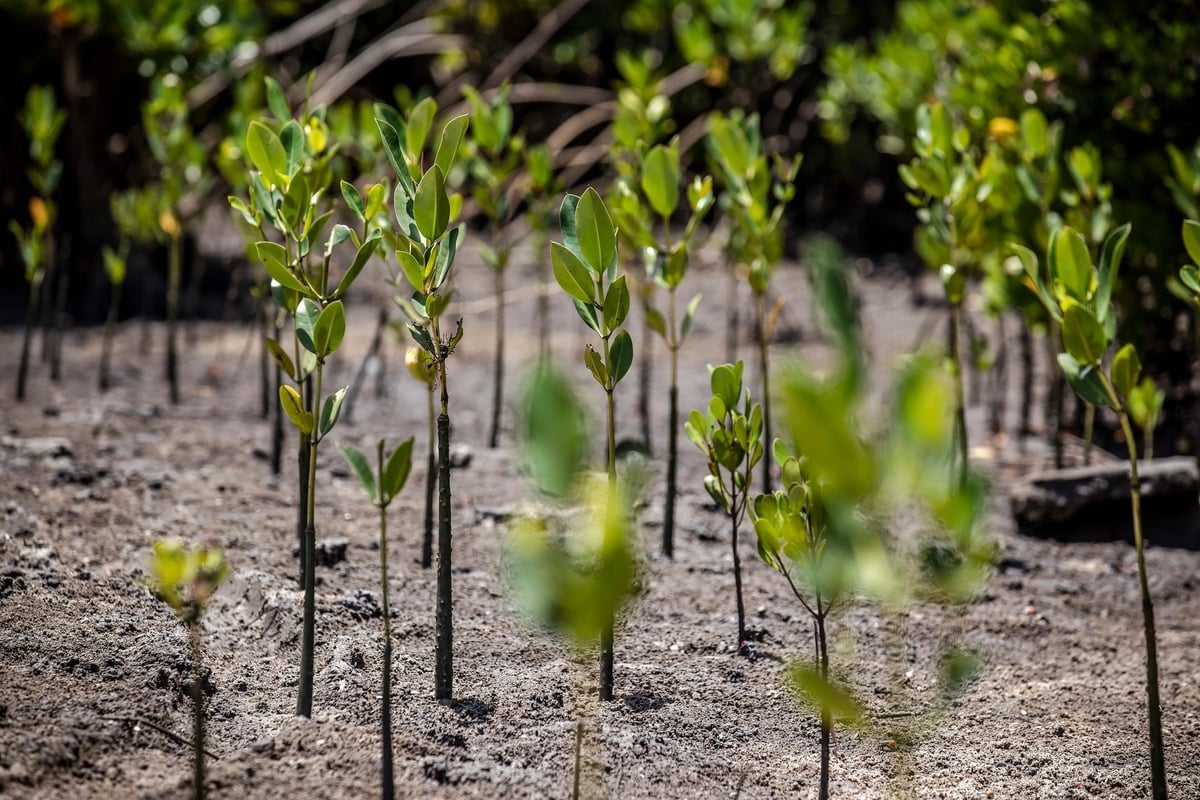May 30, 2025 | 13:15 GMT +7
May 30, 2025 | 13:15 GMT +7
Hotline: 0913.378.918
May 30, 2025 | 13:15 GMT +7
Hotline: 0913.378.918

AIM4NatuRe prioritizes a comprehensive approach to ecosystem restoration, encompassing a wide range of activities, from reforestation to the recovery of grasslands and marine ecosystems.
The Food and Agriculture Organization of the United Nations (FAO) Earth Day launched Accelerating Innovative Monitoring for Nature Restoration (AIM4NatuRe), a new initiative with GBP 7 million from the United Kingdom to improve monitoring and reporting of global ecosystem restoration efforts.
“AIM4NatuRe will provide a new dynamic input for global restoration efforts,” said FAO Director-General QU Dongyu. “By providing countries with technical expertise and solutions, and ensuring they have the resources they need to monitor their progress accurately, we can ensure that our collective efforts translate restoration commitments into real and lasting impacts for people and the planet during this UN Decade on Ecosystem Restoration and beyond.”
“AIM4NatuRe is an innovative initiative that will leverage technology and data to enhance nature restoration, building on the success of the high-performing AIM4Forests programme. The UK has a leading role in protecting and restoring forests while empowering the communities that depend on them, and we’re proud to work with partners like FAO to support countries across the globe,” said United Kingdom Minister for Climate Kerry McCarthy.
AIM4NatuRe will complement FAO’s existing AIM4Forests programme and enable the creation of a global dataset on nature restoration progress. Countries will receive support to build capacity and use the latest technology to monitor and report their progress towards target 2 of the Kunming-Montreal Global Biodiversity Framework (GBF), which aims to restore at least 30 percent of degraded ecosystems by 2030.
The initiative prioritizes a comprehensive approach to ecosystem restoration, encompassing a wide range of activities, from reforestation, restoration of degraded agricultural lands and wetland rehabilitation to the recovery of grasslands and marine ecosystems.
Ecosystem restoration is a powerful nature-based solution to address biodiversity loss, climate change and land degradation. Globally, around 1 billion hectares of land have been committed for restoration, with the potential to contribute one-third of the total climate mitigation needed to limit warming to below 2°C by 2030, while contributing to food security and livelihoods.
However, many countries lack the technical solutions and capacity to effectively track and report their progress in restoring degraded ecosystems. In a recent capacity needs assessment survey by the Convention on Biological Diversity (CBD) Secretariat, 80 percent of countries responding said they were unable to collect data to report national restoration progress.
Cutting-edge technology
At the recent Resumed Session of the CBD Sixteenth meeting of the Conference of the Parties (COP16) in Rome, Parties acknowledged the need for increased support in implementing Target 2 and invited FAO to lead the effort.
AIM4NatuRe will address this challenge by providing countries with access to cutting-edge technology, and capacity development, working toward a unified global dataset for areas under restoration. This will empower nations to move beyond broad commitments and generate verifiable data on the effectiveness of their restoration work, fostering transparency and ownership.
To ensure seamless data sharing and analysis, AIM4NatuRe will prioritize data interoperability. This will involve establishing standardized data formats and protocols that facilitate the harmonization and aggregation of data collected at national levels into a global reporting framework. This will enhance transparency and comparability while reducing the reporting burden for countries. AIM4NatuRe will also develop practical guidance documents and technical solutions, namely the Framework for Ecosystem Restoration Monitoring (FERM), to support countries in data collection, analysis, and reporting, ensuring that information is readily available and usable.
Notably, the initiative will support Indigenous Peoples in the monitoring of biocentric nature restoration, a holistic approach that prioritizes the well-being of all living things within an ecosystem. A pilot with FAO's Indigenous Peoples unit will take place in Brazil and Peru.
At a virtual event today in Rome today, FAO also launched a new publication entitled Enabling consistent reporting and monitoring for freshwater (inland waters) restoration under Target 2 to support countries in achieving GBF Target 2.
AIM4NatuRe expands on AIM4Forests, also funded by the UK, which leverages advanced technology for forest monitoring and has trained people across 14 countries. AIM4NatuRe broadens this work to all ecosystems, offering a holistic approach to monitoring restoration progress. Its capacity development initiatives include the Forest Monitoring for Climate Action e-learning curriculum with 15,748 web learners engaged.
(FAO)
/2025/05/25/4127-3-073637_820.jpg)
(VAN) Thanks to the promotion from an FAO-implemented project, vegetable production in greenhouses in Moc Chau has seen strong development, from 1.5 hectares in 2021 to nearly 50 hectares in 2024.

(VAN) FAO has recently supported USD 140,000 to implement the project 'Risk mitigation human-animal interface risks through disease control initiatives in pig farming.'

(VAN) The People's Committee of Tra Vinh province has approved an adjustment to the investment policy for the Green Hydrogen Plant project, increasing its area to approximately 52.76 hectares.
![Reducing emissions from rice fields: [2] Farmers’ commitment to the soil](https://t.ex-cdn.com/nongnghiepmoitruong.vn/608w/files/news/2025/05/05/dsc08881jpg-nongnghiep-140632.jpg)
(VAN) Clean rice cultivation model in Thuong Tan commune, Bac Tan Uyen district, is assisting local residents in achieving sustainable agriculture by substantially reducing costs, increasing productivity, and protecting the environment.

(VAN) At the conference to disseminate Resolution No. 68, AgriS introduced its digital agricultural ecosystem and reaffirmed its commitment to accompanying the Government in promoting private sector development and sustainable agriculture.

(VAN) 'Blue Ocean - Blue Foods' initiative is designed to restore marine ecosystems and establish sustainable livelihoods for local communities by cultivating a minimum of 1,000 hectares of cottonii seaweed in the first three years.
/2025/05/21/4642-3-112707_603.jpg)
(VAN) The V-SCOPE project has made direct contributions to three out of six pillars of the Comprehensive Strategic Partnership between Vietnam and Australia.